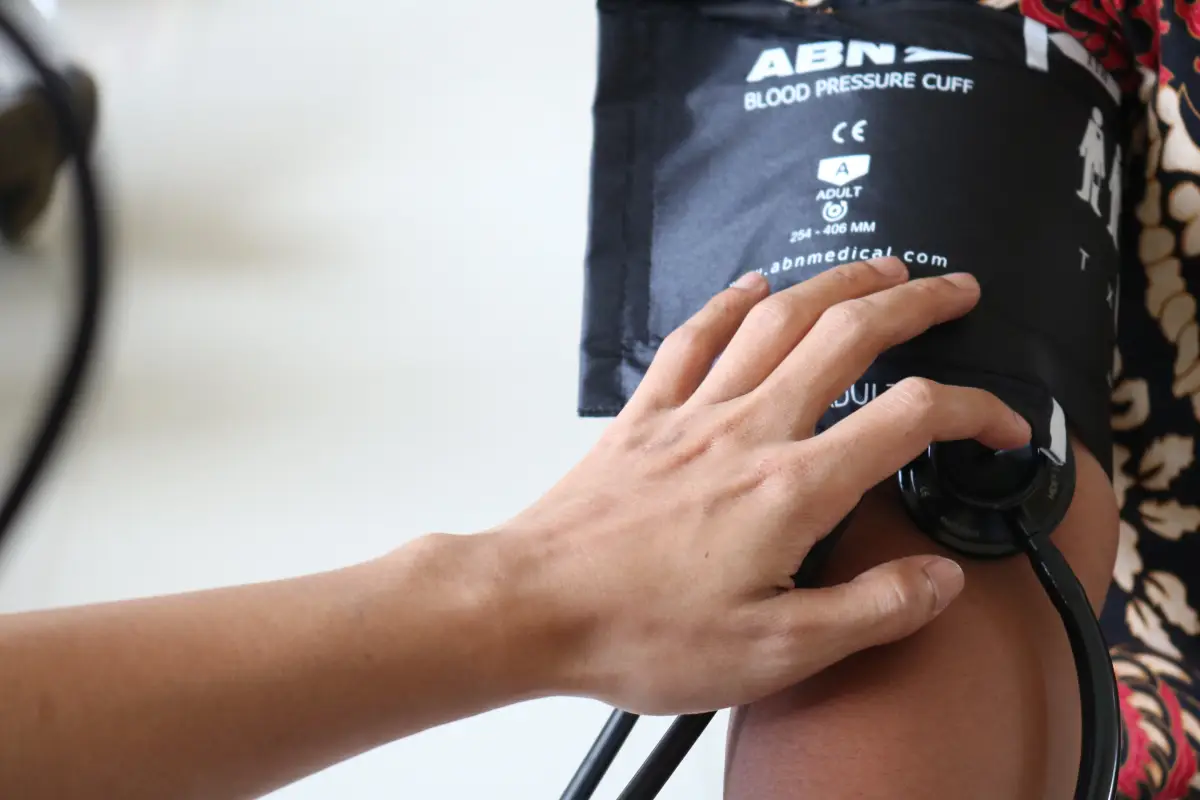Physiotherapy
Sports injury treatment and rehabilitation or ‘rehab’ is a structured programme designed by physiotherapists for people who have sustained a sporting injury.
Sports Injury
What is sports injury treatment and rehabilitation?
Sports injury treatment and rehabilitation or ‘rehab’ is a structured programme designed by physiotherapists for people who have sustained a sporting injury. Depending on the type of injury you have sustained, your programme will include a number of parts which may include strengthening exercises, mobilising, pain relief techniques and functional skills. At Prestige Physiotherapy, we aim to maximise recovery by tailoring the rehabilitation to your individual goals and monitoring your progress throughout.
What are the benefits of treatment with Prestige Physiotherapy?
The specialist senior musculoskeletal physiotherapists at Prestige Physiotherapy will work with you to provide a thorough rehabilitation programme which will encourage a number of benefits including:
- Restoring full function as soon as possible
- A faster recovery and return to sport
- Strengthening weakened muscle groups
- Reducing any pain and inflammation from your injury
- Maintaining cardiovascular fitness whilst you are out of sport
- Minimising the risk of future injuries
- Improving your flexibility and coordination
- Advice on correct footwear and equipment
Who will benefit from sports injury treatment and rehabilitation?
Whether you have been injured whilst playing high level sport or during recreational activity, the chartered physiotherapists at Prestige Physiotherapy will be able to design you a full rehabilitation programme to help you get back to full fitness. Our physiotherapists have a vast amount of experience in treating a wide variety of sports injuries including:
- Recent or chronic injuries
- Anterior cruciate ligament (ACL) ruptures or tears in the knee
- Shoulder dislocation or separation
- Rotator cuff injuries
- Frozen shoulder syndrome
- Stress fractures
- Pulled hamstrings
How does sports injury treatment and rehabilitation help?
Your rehabilitation programme designed by our dedicated musculoskeletal team will improve your recovery in the following ways:
- Breaking down scar tissue and promote the healing of tissues
- Stretching muscles and ligaments to increase range of movement
- Relieve any muscle spasm or stiffness
- Increasing lubrication and nutrition of injured and unaffected joints
- Removes chemicals in the injured area that are causing pain
- Builds up weakened muscles to regain full function
Back Pain
Low back pain is one of the most common problems seen by physiotherapists. It accounts for over 9% of adult GP visits and is one of the leading causes of disability in the UK.
According to research, 4 in 5 people will experience back pain at some point in their life. That sounds like a lot of people but it won’t affect everyone in the same way. For some people, back pain will be a simple ache that corrects itself over time but for others it can cause long-standing pain and disability.
Seeking professional advice and getting the right treatment quickly is essential. It reduces the risk of low back pain lingering, speeds up recovery and reduces its impact on everyday life.
Physiotherapist, Osteopaths and Chiropractors have long been the go-to people for low back pain. Each profession has a slightly different approach to treatment but successful outcomes often come down to the skill, knowledge and experience of the individual practitioner.
Types of Back Pain
There are a number of reasons why low back pain occurs. A number of body structures can be responsible but it is often more than one factor contributing to low back pain. These can include lifestyle factors such as smoking and lack of exercise, which are considered big risk factors.
Some of the well-known types of low back pain include nerve root irritation (e.g sciatica), muscles spasm, bone deformity, ligament or muscle strain, or intervertebral disc prolapse or degeneration. Each of these problems can affect individuals differently – in some cases causing severe pain and disability and in others producing no symptoms at all.
Physiotherapy and Lower Back Pain
Physiotherapists are considered to be the experts on lower back pain. By completing a robust assessment, they can often pinpoint what is contributing to the condition and start treatment immediately. Physiotherapists are also trained to spot more serious conditions that may present as low back pain and then refer on to the GP or specialist making them an ideal first point of contact.
Frozen Shoulder
Frozen shoulder is a condition that often starts out of the blue and has no distinctive cause. However, it has been linked with diabetes, high cholesterol, heart disease and can be triggered by an impact injury to the shoulder. This condition mostly affects people aged 40-60 years old. It is also more common in women than men.
Physiotherapy for frozen shoulder can be an effective way to support and speed up recovery. A physiotherapist can assess your shoulder and use several methods to increase movement of your shoulder. Techniques include:
- Specific physiotherapy exercises for shoulder pain designed to stretch the affected joint capsule
- Massage
- Joint Mobilisations
- Electrotherapy
- Thermotherapy
- Advice on pain relief and methods to reduce day to day pain
A combination of these methods will help to reduce your pain, increase movement and get you back to the activities that you enjoy!
Joint Pain
Physiotherapy for Arthritis can be highly effective in reducing joint pain and improving mobility. There are a number of treatments that can be used to help control symptoms and advice from a physiotherapist can help you to understand what happens to your joints and muscles when you have arthritis. Physiotherapists can also work with you to put effective management strategies in place.
Osteoarthritis is the most common type of arthritis in the UK. It affects around 8 million people. It most often develops in adults in their late 40’s or older and is more common in women. People with a family history of Osteoarthritis are also more likely to get it.
Osteoarthritis is a degenerative condition. It affects the cartilage of a joint and makes it’s movement more difficult. This leads to pain and stiffness. Once the cartilage starts to roughen and thin, the tendons and ligaments have to work harder. This can cause swelling and the formation of bony spurs within the joint. Major loss of cartilage can lead to bone rubbing on bone, altering the shape of the joint and forcing the bones out of their normal position.
The most commonly affected joints are the hands, spine, knee’s and hips.
Rheumatoid Arthritis
Rheumatoid arthritis affects more than 400,000 people in the UK. It often starts when a person is between 40 and 50 years old. Women are three times more likely to be affected than men.
Rheumatoid arthritis occurs when the body’s immune system targets affected joints. This leads to pain and swelling. The outer covering of the joint is the first place affected. This can then spread across the joint, causing more swelling and a change in the joint’s shape. This can result in bone and cartilage to breaking down.
Neck Pain and Whiplash
Neck Pain
A stiff or painful neck is often associated with sleeping in an awkward position, prolonged computer use, muscle strain, or linked with bad posture. Research suggests that stress and anxiety can also cause tension in your neck muscles, which may lead to neck pain or worsen an existing problem.
Discomfort will often resolve very quickly, but if symptoms persist for more than a couple of days then you would benefit from our expert physiotherapy treatment for neck pain.
Whiplash
Whiplash is commonly associated with incidents where the head is violently thrown forwards and back and most typically associated with car accidents and falls. It most commonly presents as neck pain, stiffness and headaches.
Most people recover from whiplash quickly, often within just a few months, provided they receive appropriate pain management, start exercise early and get the right advice and treatment early.
More severe whiplash or individuals who have been inadequately managed may experience chronic neck pain and other ongoing complications.
Tension Headache
Physical treatment is not always the first thing people consider for a headache. However, physiotherapy treatment for tension headaches can produce some great results. Especially, where medication and other treatment has failed.
Doctors first thought headaches were linked to blood vessel abnormalities in the brain. However, most experts now accept that some forms of headache are caused by problems in the upper spine. These are called Cervicogenic headaches or tension headaches.
These occur when tension and muscle in the upper back and neck are a contributing factor. Physiotherapy can be very effective in helping to relieve symptoms in this types is type of treatment can also be a great way to identify and eliminate the cause.
Post Surgical Rehabilitation
Knee Replacement
It is crucial to begin an intense physiotherapy course immediately after your total knee replacement to ensure the success of your surgery, to guarantee the return of full or near full function in your knee and to promote a longer life for the knee replacement.
Shoulder Replacement
Following shoulder replacement surgery a well planned physiotherapy programme designed with Prestige Private Medical is critical for the success of the operation. Prestige will provide a thorough assessment, including explanation of treatment, as well as design a personal rehabilitation programme. Treatment will initially focus on acute management following surgery and progress on to regaining strength and function.
Hip Replacement
Physiotherapy treatment is a crucial part of your recovery, so it is essential that you continue exercises after leaving hospital. Physiotherapy treatment at Prestige will improve muscle strength and flexibility and help you regain ambulation and function as soon as possible.
Rehabilitation goals at Prestige will include:
- Decreasing pain and swelling
- Restoring and maintaining full range of motion in the hip
- Increasing strength in the quadriceps hamstrings and glutes
- Re-education of normal gait
- Increasing fitness and endurance
- Promoting independence with functional activities
- Improving quality of life
Cervical Disectomy
Physiotherapy treatment at Prestige, following a discectomy will enhance your recovery and promote your return to full function as soon as possible. At Prestige our specialised physiotherapists are experienced at treating individuals following a disectomy. The time it will take for you to return to the level you were previously will depend on your individual symptoms and goals. A structured rehabilitation programme will be devised between you and your therapist, which will incorporate short and long term treatment goals in order to assess your progress and make sure you reach your optimum potential. Following your surgery, physiotherapy treatment at Prestige will relieve pain, increase range of movement, improve muscle strength and cardiovascular fitness and your quality of life.




